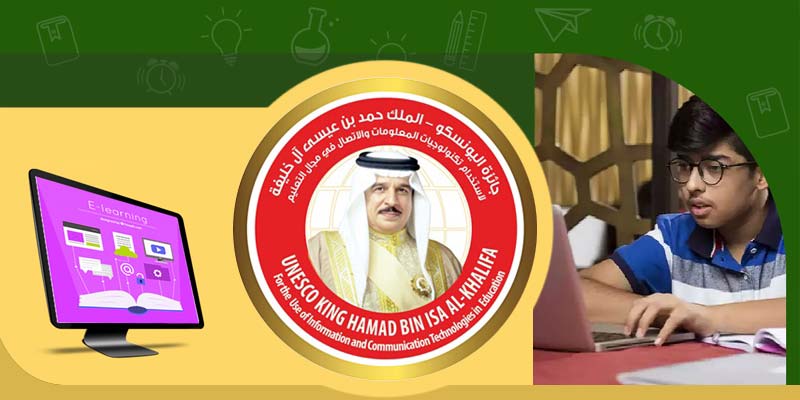- India
- Jun 21
CIET wins UNESCO’s King Hamad Bin Isa Al-Khalifa Prize
The 2021 UNESCO King Hamad Bin Isa Al-Khalifa Prize for the Use of Information and Communication Technologies (ICTs) in Education will be awarded to the “Initiatives for Inclusive and Accessible Education during COVID-19” implemented by the Central Institute of Educational Technology (CIET), a constituent unit of the NCERT, and the “Digital Educational Programme” implemented by Ubongo International from Tanzania.
Each laureate will receive $25,000 for their use of technology to enable inclusive crisis-resilient learning systems.
UNESCO ICT in Education Prize
• The UNESCO King Hamad Bin Isa Al-Khalifa Prize for the Use of ICT in Education recognises innovative approaches in leveraging new technologies to expand educational and lifelong learning opportunities for all, in line with the 2030 Agenda for Sustainable Development and its Goal 4 on education.
• Established in 2005 with the support of the Kingdom of Bahrain, the Prize rewards individuals and organisations that are implementing outstanding projects and promoting the creative use of technologies to enhance learning, teaching and overall educational performance in the digital age.
• An international jury selects two best projects annually. Each prize winner receives $25,000, a medal and a diploma during a ceremony at UNESCO Headquarters in Paris.
• Every year the Prize has a specific theme, which, while being in line with UNESCO’s mandate and values, advocates for responsible and ethical use of information and communication technologies.
• The 2021 edition is dedicated to a theme whose importance has been highlighted by COVID-19. It rewards projects that have used technology to build learning programmes that effectively ensure the continuity and quality of learning in the face of education disruptions.
• The jury reviewed 111 nominations submitted by 58 UNESCO Member States and eight NGOs in official relations with UNESCO, and recommended the two projects to recognise their achievements in harnessing technologies to serve education by adopting a variety of digital solutions, providing adaptable and high-quality content, and reaching a large scale of learners, especially the disadvantaged communities.
Central Institute of Educational Technology (CIET)
• The Central Institute of Educational Technology (CIET), National Council for Educational Research and Training has reinforced a series of programmes during COVID-19 to ensure the continuity and quality of education, reaching over 1.5 million schools, 240 million students, and 8.5 million teachers.
• The CIET was proactive in taking learning to the doorsteps of the children through use of DTH TV channels and radio stations, including community radio stations under the PM eVidya programme.
• The PM eVIDYA programme was initiated by the ministry in May 2020 which unifies all efforts related to digital, online, on-air education to enable multi-mode access for imparting education by using technology to minimise learning losses.
• The digital learning programmes were made accessible by diverse media including TV and radio, and online platforms for students, teachers and educational administrators.
• One of the major initiatives of PM eVidya is 12 eVidya TV Channels based on the line of One Class-One Channel for Classes 1 to 12 to air educational content related to the respective classes.
• The initiatives enabled flexible and personalised learning, while considering the special needs of students with disabilities and students in rural areas in India.
Origin of CIET
• CIET, a constituent unit of the NCERT, is an autonomous organisation under the ministry of education. It was established in 1984 with the merger of the Center of Educational Technology (1973) and Department of Teaching Aids (1959).
• Its main objective is to promote educational technology to extend educational opportunities and improve the quality of educational processes at the school level.
Digital Educational Programme in Tanzania
The digital educational programme of Ubongo, launched in Tanzania in 2014, has released more than 300 TV and radio files in eight local languages across 18 countries in sub-Saharan Africa, with an aim to bring effective and localised learning to school-age children and their parents by leveraging the power of entertainment, technologies. As one of the biggest educational entertainment initiatives in Africa, Ubongo shows the ability to develop, adapt and distribute new content to support disruptive learning environments, home-based learning and context-specific education, such as for refugees and kids recovering from traumas.
Manorama Yearbook app is now available on Google Play Store and iOS App Store

